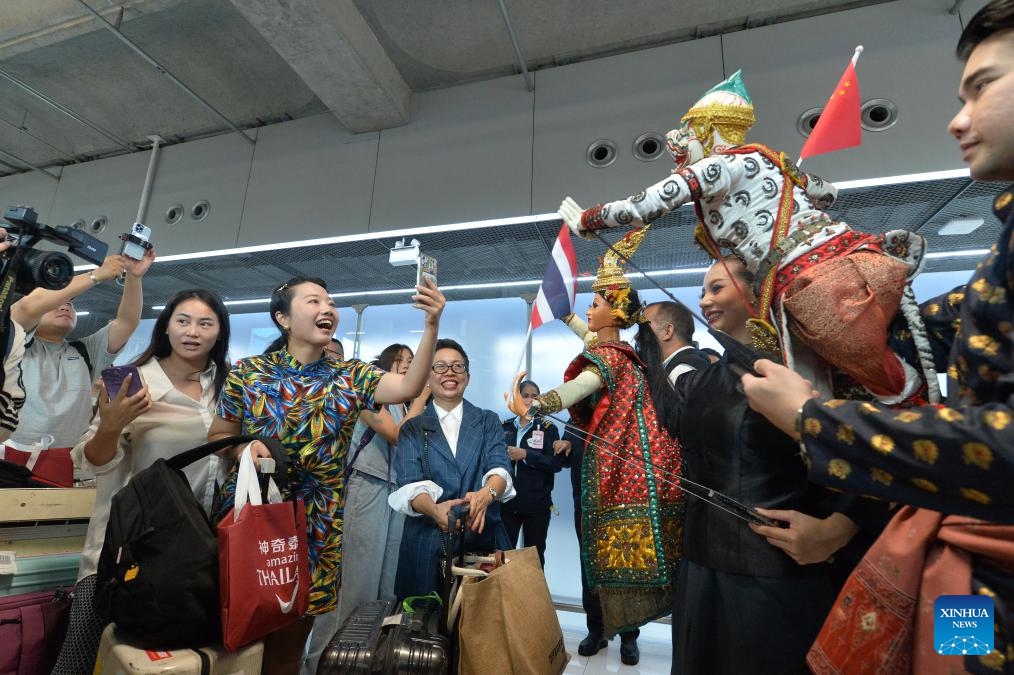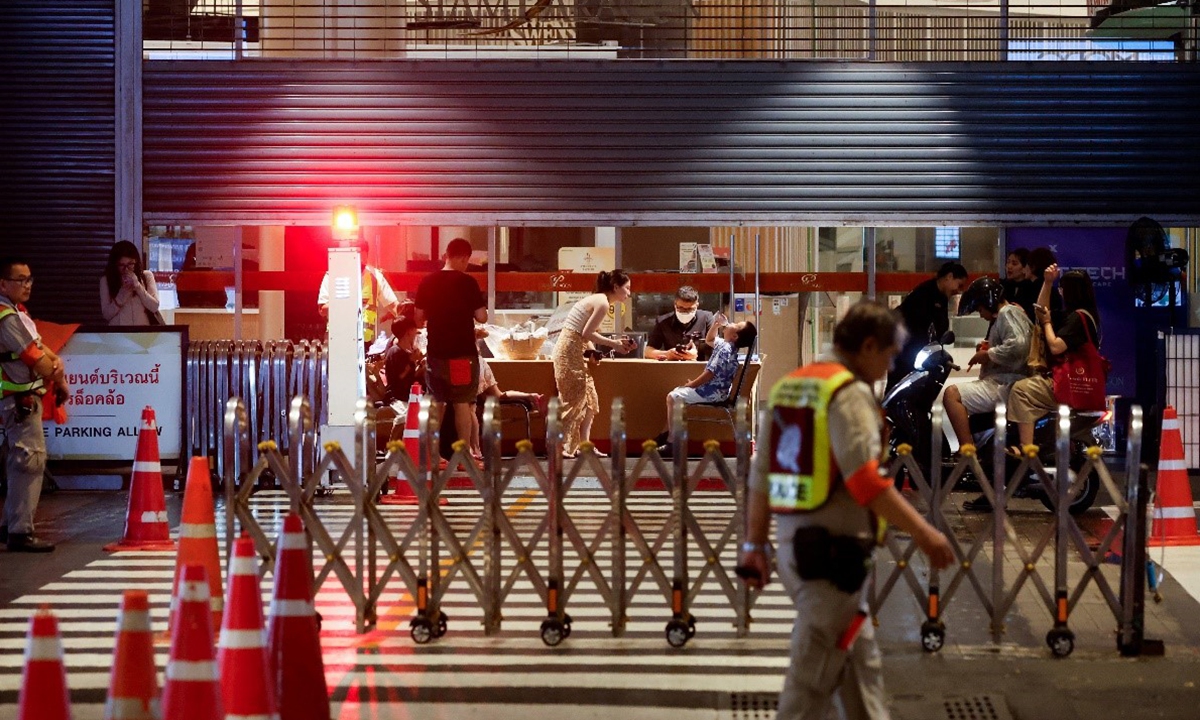Thai government defends Chinese police cooperation proposal; Western media’s hype of ‘sovereignty concern’ ill-intentioned and unfounded: experts

Staff members welcome Chinese tourists at Suvarnabhumi airport in Bangkok, Thailand, Sept. 25, 2023. Thailand extended a warm welcome to the first batch of visa-exempt flights from China on Monday, marking the launch of the nation's fresh initiative to reinvigorate its Chinese tourist market. (Photo: Xinhua)
Thai Prime Minister Srettha Thavisin on Monday defended the proposal to cooperate with Chinese police on information exchange about criminal networks, but denied there are plans to invite Chinese police officers to patrol local tourist destinations.
The cooperation would boost the confidence of Chinese tourists, Srettha told reporters in San Francisco on Monday, according to Bloomberg on Tuesday.
Chinese experts refuted individual Western media reporting such as Bloomberg's bad-faith hyping of "national security" concerns, stressing that this police cooperation, if it happens, would only be based on mutual respect for each other's laws and regulations and has nothing to do with independence or sovereignty.
Experts stressed police cooperation can help the two countries share experiences on combating crimes and boost Chinese tourists' confidence to visit Thailand amid public safety concerns following a deadly shooting in Bangkok in early October that killed one Chinese tourist and injured another.
"Please do not exploit this matter for political gain. It would be better if all sides concentrate in working for the benefit of the country and the people," a Thai government spokesperson Chai Wacharonke said earlier on Monday, Thai media outlet the Bangkok Post reported.
Chai said the idea of the cooperation with Chinese police was raised by Royal Thai Police (RTP) representatives during a meeting on security for Chinese tourists with prime minister at Suvarnabhumi Airport in Bangkok on Sunday. Representatives of the Tourism Authority of Thailand were also present.
According to the Thai government spokesperson, the RTP said they had found Chinese tourists were afraid they could be targeted for attack by Chinese criminals while visiting Thailand. Police representatives suggested the best way to cope with Chinese criminals was for Chinese police to be invited to come and work alongside Thai police. They could provide Thai police with information to enable effective operations against Chinese criminals, and prevent them from destroying tourists' confidence, Chai said.
Criticism that the presence of Chinese police would be tantamount to Thailand giving up its independence and sovereignty was unfounded, the spokesperson stressed.
The Thai spokesperson's remarks came after Thai media outlet The Nation reported that Thapanee Kiatphaibool, director of the Tourism Authority of Thailand (TAT), announced on Sunday a decision to invite Chinese police officers to participate in patrols in several tourist cities.
However, the police cooperation plan triggered controversy after Bloomberg on Monday tried to smear the police cooperation proposal, citing some unidentified Thai internet users as saying that "they are worried that Thailand would become another location for covert operations targeting Chinese dissidents overseas."
Xu Liping, director of the Center for Southeast Asian Studies at the Chinese Academy of Social Sciences, told the Global Times that the police cooperation is only about public security and has nothing to do with "national security" issues.
Western media's hype is over-interpreted and unfounded, Xu said, noting that police cooperation will be maintained in compliance with relevant Thai laws and regulations and so it will be impossible to affect Thailand's independence or sovereignty.
Experts noted that the Thai tourism industry is eager to have more Chinese travelers amid the sluggish economic recovery after the COVID-19 pandemic.
The Bangkok Post reported on October 17 that about 60,000 tourists from the country had canceled trips to Thailand after a 14-year-old went on a deadly shooting rampage in a Bangkok mall on October 3 during the Chinese National Day holidays, which is a golden week in China for tourism. Airports of Thailand data showed the number of Chinese arrivals has declined by 9.2 percent from 650,000 to 590,000 visitors following the incident.

